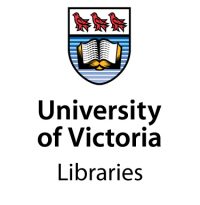In the 2022 edition of the influential CWTS Leiden Ranking, UVic was ranked as top Canadian university in open access publishing: It is ahead in making its research publicly accessible, with an overall share of 57.8% circulating in open access journals and repositories.
With other Canadian universities close behind, this is a remarkable success for open scholarship and the open access movement at the university.
 An important cornerstone for this development is the Budapest Open Access Initiative (BOAI), which celebrates its 20th anniversary this year. The influential declaration was signed in February 2002. Although there are predecessor declarations advocating for public access to specific forms of information, the BOAI is considered the first international declaration on the general free availability of scientific publications and the first to adopt and define the term Open Access (OA). It gave momentum to the emerging OA movement by consolidating the ideas of several pioneering initiatives and laid the foundation for successive OA declarations that became equally influential, such as the Bethesda Declaration on Open Access Publishing and the Berlin Declaration on Open Access to Knowledge in the Sciences and Humanities (both 2003).
An important cornerstone for this development is the Budapest Open Access Initiative (BOAI), which celebrates its 20th anniversary this year. The influential declaration was signed in February 2002. Although there are predecessor declarations advocating for public access to specific forms of information, the BOAI is considered the first international declaration on the general free availability of scientific publications and the first to adopt and define the term Open Access (OA). It gave momentum to the emerging OA movement by consolidating the ideas of several pioneering initiatives and laid the foundation for successive OA declarations that became equally influential, such as the Bethesda Declaration on Open Access Publishing and the Berlin Declaration on Open Access to Knowledge in the Sciences and Humanities (both 2003).
The focus in the original 2002 BOAI declaration was on the transformation of scholarly, peer-reviewed journal publications to OA, either by publishing in OA-only journals (the golden road) or by self-archiving articles that had not appeared in OA journals in subject and/or institutional repositories (the green road).
The declaration was renewed (BOAI10) in 2012 to mark its 10th anniversary. The first generation of OA declarations made an impact and the acceptance and implementation of OA has improved since. The result was a set of detailed proposals on a wide range of critical issues. For the first time, they encouraged research institutions and funders to adopt policies to promote (green) Open Access publishing. In addition, the statement urged building sustainable infrastructures through repositories and open metadata. It advocated the use of the most open licenses possible to disseminate knowledge and open metrics to assess its visibility. The statement ended with a plea for greater collaboration within the global Open Access community and a call to create a positive narrative for Open Access.
This year’s 20th anniversary of the BOAI declaration led to a new update of its recommendations. The BOAI20 declaration highlights the role of open access as a building block toward open scholarship as a whole. Its key recommendations for more OA are:
- The use and expansion of open, non-commercial infrastructures for the realization of open access and open scholarship
- A reform of the evaluation procedures for research achievements that includes rewarding open access publishing
- Economic independence for researchers in OA publishing by moving away from APCs and even more consistently towards repositories (green OA) and free open access journals (diamond OA)
- Returning to the original goals of the open access movement in the face of an impending monopolization of the OA publishing market by a few dominant, commercial players and a global imbalance for researchers in accessing their publishing platforms. It specifically suggests a critical reassessment of Read & Publish (also called transformative) agreements with those publishers under these circumstances
UVic’s measures regarding Open Access moved along BOAI’s recommendations early on and they continue to do so:
- The beginnings of its institutional repository – UVic Space – date back to 2005. Maintained consistently at current technological standards, is well integrated into international infrastructures for the dissemination of scholarly content, and is the first point of contact for UVic authors when it comes to making their publications permanently open access via the green route in compliance with the requirements of research funders.
- The recent implementation of Altmetric Explorer in UVic’s portfolio for evaluating research performance promotes a non-traditional view on the visibility of contributions to scholarship by members of UVic (and beyond). The tool exemplifies what has also been scientifically proven: that open access publications receive greater attention more quickly.
- UVic Libraries also host several open access journals open to authors outside of UVic, many of them free of APCs (diamond OA).
- It uses open-source-based infrastructures such as the Open Journal System to operate them
- UVic Libraries is continuously re-evaluating their Read&Publish agreements with academic publishers, including from the perspective of cost-effectiveness, but also in terms of their resonance with UVic authors and their usefulness in advancing Open Access.
The recent recognition of this fact by the Leiden Ranking confirms UVic’s existing strategies around open scholarship, and especially open access. Nevertheless, the latest recommendations for BOAI’s 20th anniversary hold plenty of incentives and suggestions for continuous improvement. Thank you for the continuous inspiration and Happy Anniversary, BOAI20!
